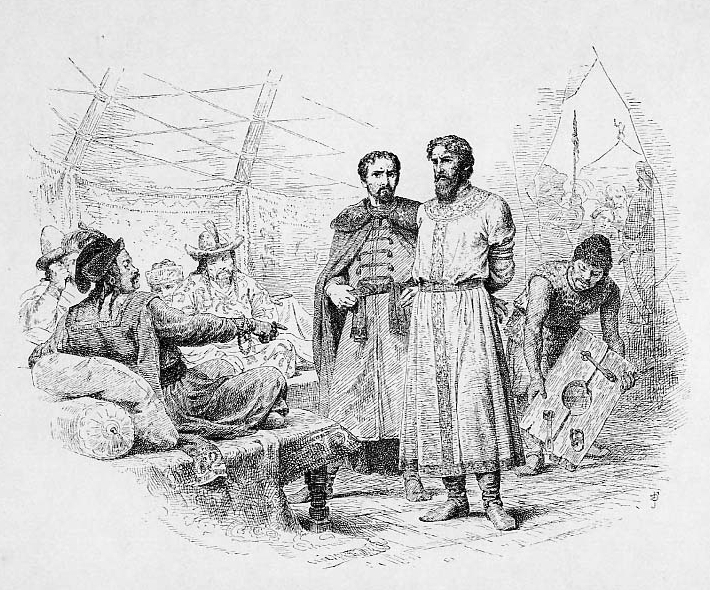
Mikhail of Tver
Mikhail Yaroslavich (Russian: Михаил Ярославич) (1271 – 22 November 1318), also known as Michael or Mikhail of Tver, was a Prince of Tver (from 1285) who ruled as Grand Prince of Vladimir from 1304 until 1314 and again from 1315 to 1318. He was canonized and counted among the saints of the Russian Orthodox Church.
For other people, see Mikhail II of Tver and Mikhail III of Tver.Mikhail Yaroslavich of Tver
1271
22 November 1318 (aged 46–47)
Sarai
Prince Dmitry of Tver
Prince Alexander of Tver
Prince Konstantin of Tver
Prince Vasily of Kashin
Feodora of Tver
Mikhail Yaroslavich was the second son of Yaroslav III (Yaroslav Yaroslavich), the younger brother of Aleksandr Nevsky; he succeeded his elder brother Yaroslav as Prince of Tver in 1285. His mother Xenia was the second spouse to Yaroslav III and is known as the saint Xenia of Tarusa. Upon the death of Andrei Aleksandrovich (Aleksandr Nevsky's son and Yaroslav's nephew), Mikhail became the Grand Prince of Vladimir in 1304, as was consistent with the rota system of collateral succession that had been practised in Rus since the time of Yaroslav the Wise. He was confirmed in office by Tokhta, Khan of the Golden Horde.[1]
Mikhail and the Church[edit]
Mikhail also alienated the Church, particularly Metropolitan Petr (ruled 1308–1326). When Metropolitan Maksim died in 1305, Mikhail nominated another candidate, but Petr was consecrated by the Patriarch of Constantinople. Petr sided with Moscow and opposed Mikhail on several occasions. In 1309, he appointed David as Archbishop of Novgorod and David was instrumental in the argument that led Mikhail to withdraw his lieutenants and cut the grain supplies to the city. In 1314, Novgorod called on Yury to be named grand prince and for Mikhail to be deposed. Thus the support of the Church aided Yury to Mikhail's detriment.[5] Despite his having been unfavored by the Russian Orthodox Church during his lifetime, the Church later declared Mikhail a saint because of his piousness during his summons by the Khan which he knew was to certain death and because his relics, when transported to his hometown, were discovered to be incorrupt.[6]